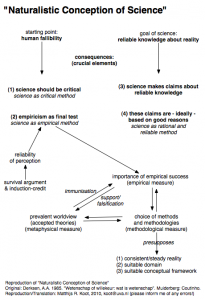UPDATE 2012-01-18: related news, found via @LiberationTech: U.S. Congress May Soon Take Questions From The Great State Of Social Media
Disclaimer: I have not been educated in public policy or politics.
In Wiki Government (2009), author Beth Simone Noveck discusses how technology can benefit democracy when used for citizen participation, working toward a more open model of decision-making. The Dutch government is currently running a two-year pilot program at www.internetconsultatie.nl in which all ministries (are said to) consult the public about at least 10% of their legislative proposals (I don’t know how they measure the “10%”). Although I highly appreciate this pilot as a step toward a (more) participatory democracy, I hope its successors at the level of both Dutch ministries and Dutch municipalities will make sure to take into account Noveck’s lessons-learned described in chapter 8 (citation):
- Ask the right questions: The more specific the question, the better targeted and more relevant the responses will be. Open-ended: “What do you think of x?” questions only lead to unmanageable and irrelevant feedback.
- Ask the right people: Creating opportunities for self-selection allows expertise to find the problem. Self-selection can be combined with baseline participation requirements.
- Design the process for the desired end: The choice of methodology and tools will depend on the results. But the process should be designed to achieve a goal. That goal should be communicated up front.
- Design for groups, not individuals: “Chunk” the work into smaller problems, which can easily be distributed to members of a team. Working in groups makes it easier to participate in short bursts of time and is demonstrated to produce more effective results.
- Use the screen to show the group back to itself: If people perceive themselves to be part of a minimovement, they will work more effectively together across a distance.
- Divide the work into roles and tasks: Collaboration requires parceling out assignments into smaller tasks. Visualizations can make it possible for people to perceive the available roles and choose their own. Wikipedia works because people know what to do.
- Harness the power of reputation: Organizations are increasingly using bubbling-up techniques to solicit information in response to specific questions and allowing people to rate the submissions.
- Make policies, not websites: Improved practices cannot be created through technology alone. Instead, look at the problem as a whole, focusing on how to redesign internal processes in response to opportunities for collaboration.
- Pilot new ideas: Use pilot programs, competitions, and prizes to generate innovation.
- Focus on outcomes, not inputs: Design practices to achieve performance goals and metrics. Measure success.
In addition: could anything be learned from www.derdekamer.net and www.democratiespel.nl ? I’d be very happy to read your comments!
